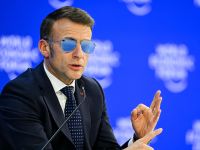President Barack Obama's summit meeting Thursday, with Persian Gulf countries, faces hurdles including proliferation of nuclear capability prompted by Iran.
The two-day meeting at Camp David with leaders of the United States and the six-nation Gulf Cooperation Council (GCC) was to have been an assurance that US leadership would maintain a guarantor relationship with the oil-rich countries.
The pending deal between Iran and the United States, which slows but does not stop Iran's development of technology that could be used to make nuclear weapons, has caused the Gulf nations, led by Saudi Arabia, to promise to match Iran's nuclear capability as a check on Iran's growing influence in the region.
"We will have frank discussions with the president. We will be against ISIS [the Islamic State], but that doesn't mean we are going to let Iran win," Mohammad al-Kuwari, Qatari ambassador to the United States, said of the summit, which began Thursday.
"I think we are looking for some form of security guarantee, given the behavior of Iran in the region, given the rise of the extremist threat. In the past, we have survived with a gentleman's agreement with the United States about security. I think today we need something in writing. We need something institutionalized," said Yousef al-Otaiba, United Arab Emirates ambassador to the United States.
The gathering is no longer an actual summit meeting; only the kings of Qatar and Kuwaitare in attendance. Bahrain, Saudi Arabia, the United Arab Emirates and Oman sent deputies.
The Gulf nations have demonstrated a willingness to leave the US umbrella of protection by sending airstrikes against IS positions in Libya and against Iran-backed Houthi rebels in Yemen.
At issue is a potential treaty, which would delay Iran's nuclear capability by ten years, and Saudi Arabia's promise to match whatever uranium enrichment capability Iran can maintain under the treaty.
"We can't sit back and be nowhere as Iran is permitted to retain capability and amass its research," an unidentified Gulf nation diplomat told the New York Times.
Prince Turki bin Faisal, former Saudi intelligence chief, pointed out in South Korea last month, that although "the small print of the deal [with Iran] is still unknown," it "opens the door to nuclear proliferation, not closes it, as was the initial intention."








